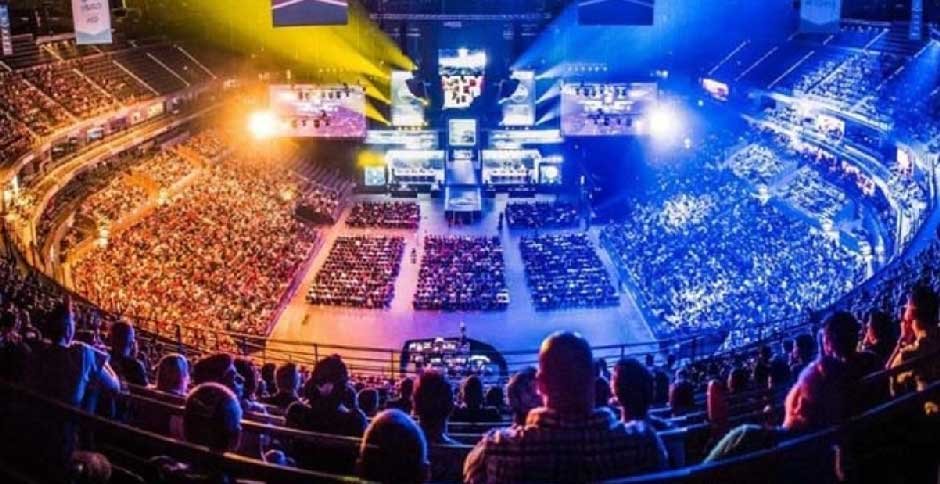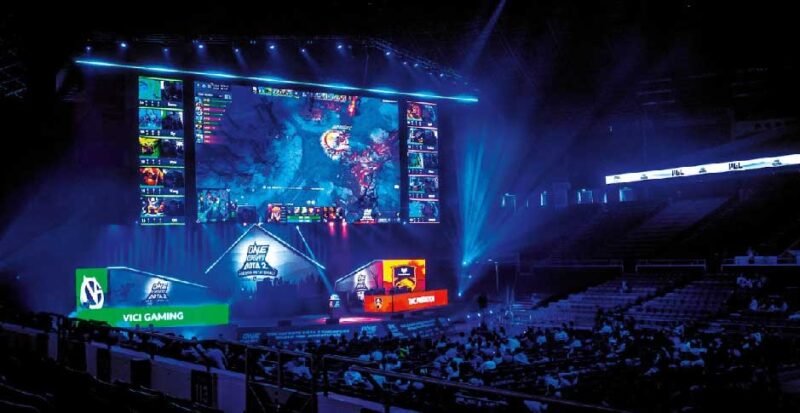In recent years, esports events have gained unprecedented popularity, becoming a major form of entertainment for millions worldwide. With the rise of online streaming platforms, accessibility to competitive gaming, and a shift in entertainment preferences, esports are slowly but surely overtaking traditional live concerts as the event of choice for many. People are looking for new and exciting ways to experience live entertainment, and esports provides that dynamic and immersive environment. In this article, we’ll delve into the reasons behind this cultural shift and explore why more and more people are choosing esports over traditional concerts.
The Accessibility Factor: Esports Reach a Global Audience
One of the major reasons why esports events are gaining traction is their ability to reach a global audience. Unlike concerts that are limited to a specific location, esports events are often streamed online, making them accessible to anyone with an internet connection. Platforms like Twitch, YouTube, and others have made it easier for fans to follow tournaments, watch live matches, and even engage with the players. This global access not only increases the size of the audience but also builds an international fan base that would be impossible to achieve with traditional concerts. For example, fans who want to stay updated on the latest lol live scores can easily check them online, allowing them to follow their favorite games no matter where they are. This kind of immediate access has made esports an increasingly attractive alternative to the limited experience of attending concerts.
In addition to the accessibility of live streams, the ability to engage in events remotely has created a sense of community among fans. Online chat rooms, forums, and social media interactions further enhance the connection between fans and the esports world, creating an experience that is often more immersive than traditional concerts. The esports community is also extremely active, with people sharing experiences, memes, predictions, and discussing strategies, all of which foster a deeper connection to the events.
The Appeal of Competitive Gaming and Spectator Value

Esports are not just about playing games; they offer a level of competitive intensity and professional gameplay that rivals traditional sports. Esports tournaments, like those for popular games such as League of Legends (LoL) and Dota 2, bring together the best players from across the globe. This competitive aspect provides a unique form of entertainment that concert-goers may not find in live music performances. The intensity of the matches, along with the pressure of the tournament environment, creates an exhilarating atmosphere that draws fans in. As a spectator, you are not only watching skilled players, but you are also experiencing the drama, strategy, and teamwork that goes into each match. The stakes are high, and every moment counts, adding a level of suspense that makes each game unpredictable.
For those who follow lol events, the excitement of seeing elite players face off in tournaments is unmatched. The tournaments often feature exciting storylines, such as underdog teams beating favorites, last-minute comebacks, and the building rivalry between top-tier players. The sheer unpredictability of the matches adds an extra layer of thrill, making esports events more engaging and suspenseful than many concerts. Fans get emotionally invested, rooting for their favorite teams and players, creating a communal atmosphere that can be likened to the excitement of a live sports match.
Cost-Effectiveness: Esports Over Concerts
Another factor contributing to the growing preference for esports events is the cost. Attending a live concert can be a significant financial investment, especially when factoring in ticket prices, travel expenses, and accommodation. Concert tickets, particularly for high-demand artists or festivals, can reach hundreds of dollars, and for fans living in smaller cities, the additional cost of travel makes concerts even less accessible. On the other hand, esports events are often more affordable or free to watch, especially through online streams. Fans can easily tune into major tournaments without the need for tickets or travel, allowing them to save money while still enjoying top-tier entertainment. Even if you decide to attend an esports event in person, ticket prices are generally more accessible compared to concerts.
Additionally, esports often offer a wide variety of tournaments and competitions throughout the year, giving fans plenty of opportunities to attend or watch live events without breaking the bank. This constant stream of content makes esports more financially feasible for fans compared to the relatively limited number of major concerts per year. The variety of events, from smaller local tournaments to major international competitions, ensures that there’s always something for everyone, no matter the budget.
The Interactive Experience of Esports Events
Esports events offer a level of interactivity that concerts often cannot match. With esports, fans have the ability to influence the event in real-time through online voting, in-game participation, and live chats. The interactivity allows fans to feel more connected to the events, as they can comment on the game, cheer for their favorite players, or even participate in the matches through social media or live stream chats. For instance, fans can participate in fantasy leagues, create fan art, and vote for MVPs, all of which increase the level of interaction with the event. This interactivity fosters a deeper connection between fans and players, enhancing the overall experience.
At traditional concerts, the experience is mostly passive, where the audience watches the performance unfold in front of them. While the excitement and energy of a live concert are undeniable, the lack of engagement may not resonate with younger audiences who crave a more dynamic and interactive experience. In esports, fans have the opportunity to shape the narrative, influence outcomes, and interact with the players, making the experience feel more personal and impactful. This ability to engage on multiple levels enhances the overall enjoyment and investment in the event, creating a deeper connection that fans can carry with them long after the event ends.
Conclusion
In conclusion, while traditional concerts have long been a staple of live entertainment, esports events are quickly emerging as the preferred choice for many. With their global accessibility, the appeal of competitive gaming, cost-effectiveness, and interactive nature, esports events offer a unique and engaging experience that resonates with a younger, tech-savvy audience. As esports continue to grow in popularity and recognition, it’s clear that the future of live entertainment may well belong to the world of competitive gaming. The rise of esports marks a shift in how people consume entertainment, signaling a future where virtual arenas and gaming competitions rival the experience of live concerts in terms of excitement, community, and engagement.








